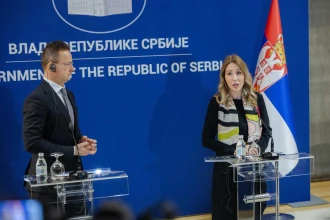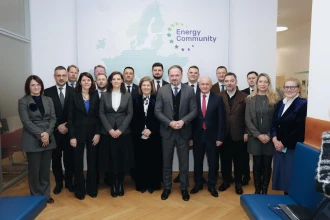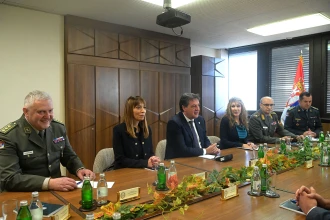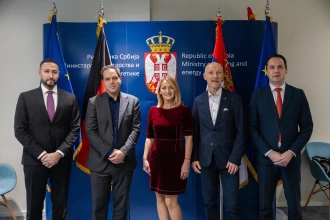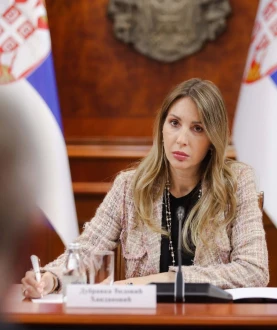Minister of Mining and Energy, Dubravka Djedović Handanović, met at the Government of Serbia with the Ambassador of the Federal Republic of Germany to Serbia, Anke Konrad, and the Director of the German Development Bank (KfW) for Southwest Europe and Turkey, Klaus Müller, to discuss cooperation on ongoing projects in the energy sector and plans for further investments in renewable energy sources and improvements in energy efficiency.
Djedović Handanović Meets with Konrad and Müller on Development Aid from the German Government to Serbia's Energy Sector
Djedović Handanović emphasized the importance of the climate partnership with Germany and expressed gratitude for the consistent support that Germany provides to Serbia in modernizing its energy sector.
“We are grateful to the German government and the development bank KfW for their continued support across various energy subsectors — from district heating and energy efficiency to the development of new capacities from renewable energy sources. Serbia and Germany maintain a constructive and intensive dialogue that yields concrete results, aligned with our ambitions and reform goals in the energy sector and we plan to deepen our cooperation in the coming period through new projects,” the Minister stated.
The Minister highlighted the successful cooperation with KfW in constructing new biomass heating plants and integrating renewable energy sources into district heating systems.
“We have built four entirely new biomass heating plants and are moving forward with the second phase, during which new boilers will be installed in the heating plants in Prijepolje, Novi Pazar, Niš, Rača, Vranje, and Majdanpek over the coming years. Additionally, by the end of the year, we plan to finalize an agreement on the integration of renewable energy sources into heating plants across the country, using solar technology and heat pumps. The total value of 60 million euros —of which 20 million would be a grant made possible through KfW’s support,” she said.
She also noted that construction work is nearing completion on a wind farm located on former mining landfills in Kostolac, with a capacity of 66 MW.
“All 20 towers of EPS’s first wind farm have already been installed, along with 95 percent of the cable network. This year, we will generate the first green megawatts from this wind farm, which demonstrates Serbia’s commitment to developing new renewable energy capacities. This is one of the most important projects being implemented with KfW, due to its contribution to decarbonization and reducing dependence on fossil fuels,” said Djedović Handanović.
She also noted that the energy rehabilitation of the Military Medical Academy (VMA) building is one of the key projects being carried out in cooperation with KfW.
“The energy rehabilitation of the Military Medical Academy will help reduce both energy and financial costs, while also improving working and living conditions for doctors and patients. The first phase of the project is currently underway, focusing on defining energy renovation measures such as upgrading the heating and cooling systems, renovating the building structure and roofs of the lower sections, and utilizing solar energy. We expect the tendering process to be completed by the end of the year, with construction scheduled to begin next year. The project will contribute to a 35 percent reduction in harmful gas emissions at this hospital,” the Minister stated.
The Ambassador of the Federal Republic of Germany, Anke Konrad, emphasized her country’s long-standing support for Serbia in its energy transition process.
“Over the past 25 years, Germany has allocated approximately 2.5 billion euros in development cooperation to support to Serbia’s energy sector. We are pleased that Serbia is committed to the goal of achieving climate neutrality by 2050. We are ready to support your plans for the decarbonisation and aim to further strengthen our cooperation, as well as jointly identify new projects,” Konrad said.
The Director of the German Development Bank (KfW) for Southwest Europe and Turkey, Klaus Müller, highlighted the bank’s interest in joining the support program aimed at improving energy efficiency in residential buildings in Serbia.
He noted that the bank is committed to supporting Serbia in the development and integration of hydrogen technologies, which are gaining increasing importance within the European Union.


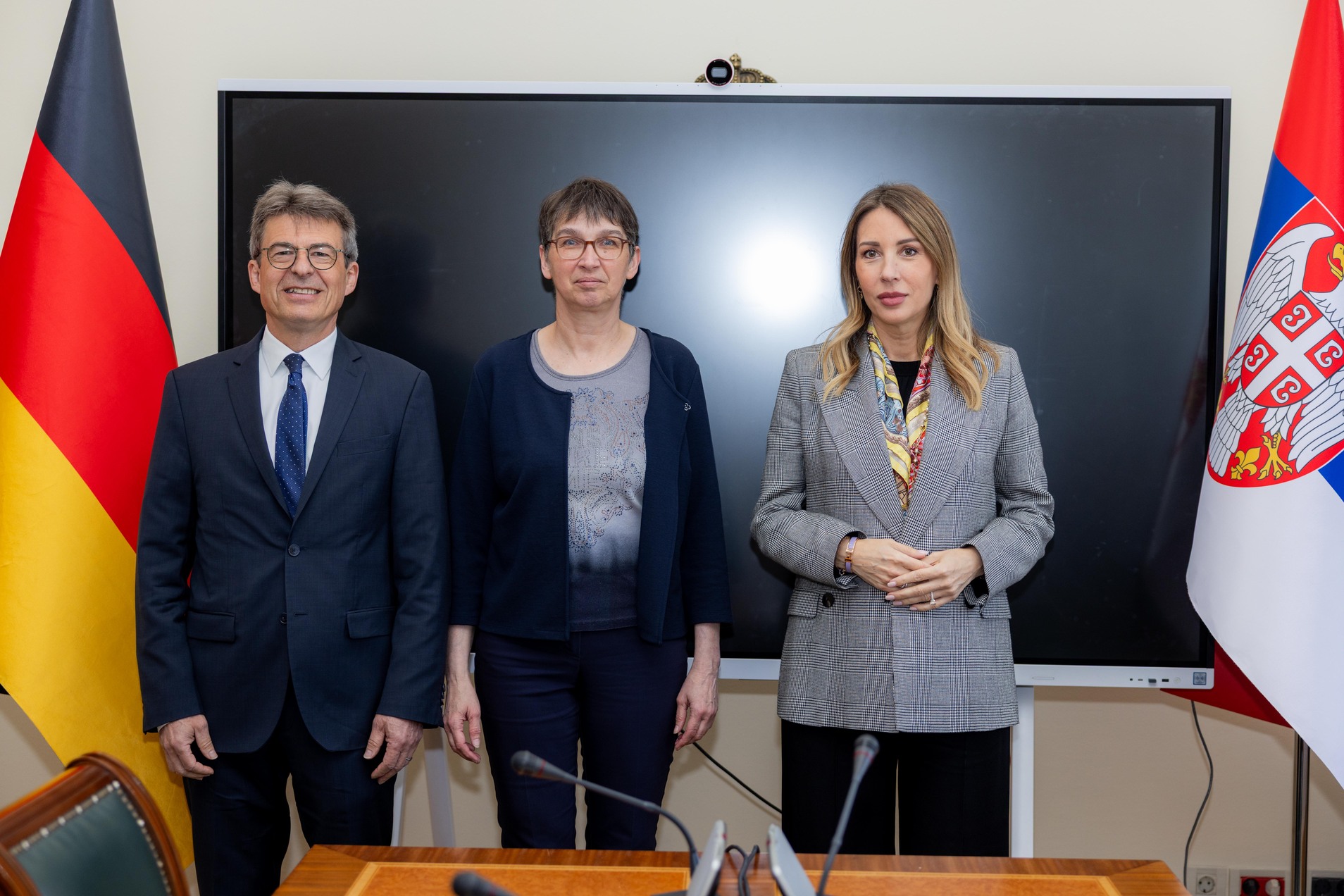
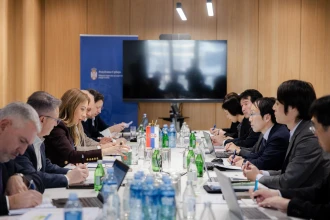
.webp)
